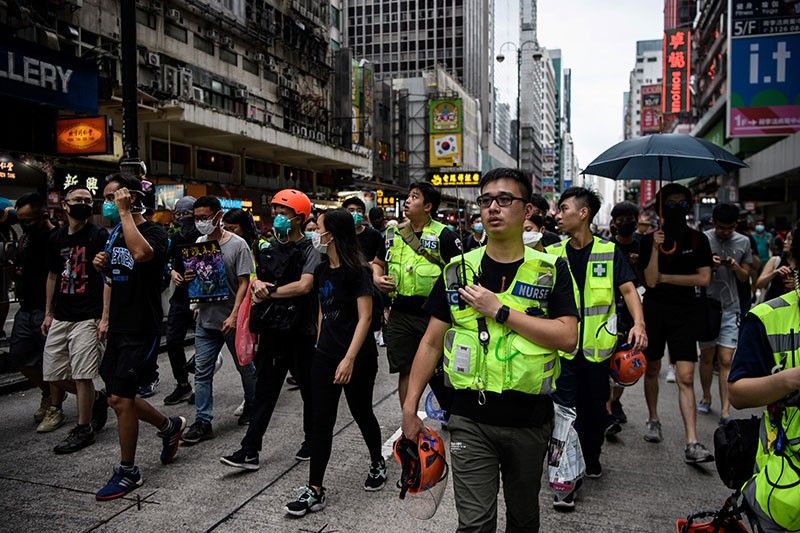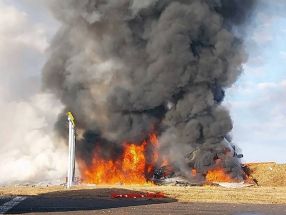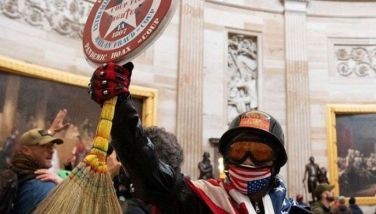'It's humanitarian': The medics helping Hong Kong's protesters

HONG KONG, China — In the early days of Hong Kong's protests, Jonathan put out a call on a messaging app seeking fellow medics to aid demonstrators -- within a day, 4,000 people had volunteered.
Nurses, doctors, medical students and ordinary people with first aid training all clamoured to join what has become a small volunteer corps helping treat people on the frontlines of protests that have engulfed the city for over two months.
Among them is Joshua Cheung, a 25-year-old salesman who learned first aid skills at a young age and joined the volunteers on June 12, after police fired tear gas, rubber bullets and bean bag rounds for the first time during the protests.
He has quickly become an old hand -- on the evening of August 4 he was already on his third protest site that day, attending to a resident after a cloud of tear gas descended in the Wong Tai Sin neighbourhood.
"Blink your eyes, constantly, constantly," Cheung told the man, dousing his face with saline solution.
The role of the volunteer medics has grown more important as protests have become increasingly violent, with police firing tear gas, pepper spray and rubber bullets at demonstrators hurling bricks and bottles.
"What we do is humanitarian aid. We will help the injured, no matter whether they are protesters or policemen," Cheung told AFP.
'A way to help'
He was working with three other volunteer medics, dressed in fluorescent green high-visibility vests with reflective strips and labels reading "nurse" or "EMS" to indicate their role.
They carried backpacks stocked with gauze, bandages, scissors and antiseptic, as well as saline to rinse the faces of protesters affected by pepper spray and tear gas.
"I've seen many of them getting injured during the protests, including being tear-gassed, pepper sprayed, which made them suffer," he said.
"So I want to find a way to help them so that they can continue to express their demands."
Cheung has helped everyone from residents caught up in protests to journalists injured covering the unrest, but he has kept his role secret from his parents, fearing they would worry.
Jonathan, who helped organise the volunteer medics on the Telegram app, is a medical worker and asked to be identified by his first name only.
Each week he meets up with other volunteers to discuss operation plans and where to station their medical resources.
On weekends, protests often descend into running battles with police, and the medics have to make preparations for being out on the streets overnight, as they did on June 30, when protesters took over key roads on the anniversary of the city's handover to China.
Demonstrators blockaded roads, and chaos erupted when police decided to charge in to clear them.
"The injured were brought in by the dozen," Jonathan said.
'I started crying'
"That was a shocking moment. Some were injured, some fainted, some had bloody head wounds and some were hysterical, but there were only one or two first aiders to handle it."
"Right after we treated the patients and the ambulance came, I couldn't help myself and I started crying."
"I called my family to tell them what had just happened. I don't think that emotion is something a normal person can handle."
Jonathan's family knows all about his work, and he has his mother's full support.
"She's worried about me, but she also understands that even if she asks me not to go, I will continue to go," he said with a smile.
Cheung, like Jonathan, remains committed to the work, despite the dangers and the long hours.
On August 4, his first aid team had been working for 13 hours. It was 1:30 am, but they had no plans to go home.
"We will stay until the end, when the protesters leave safely," he said.
- Latest
- Trending
































